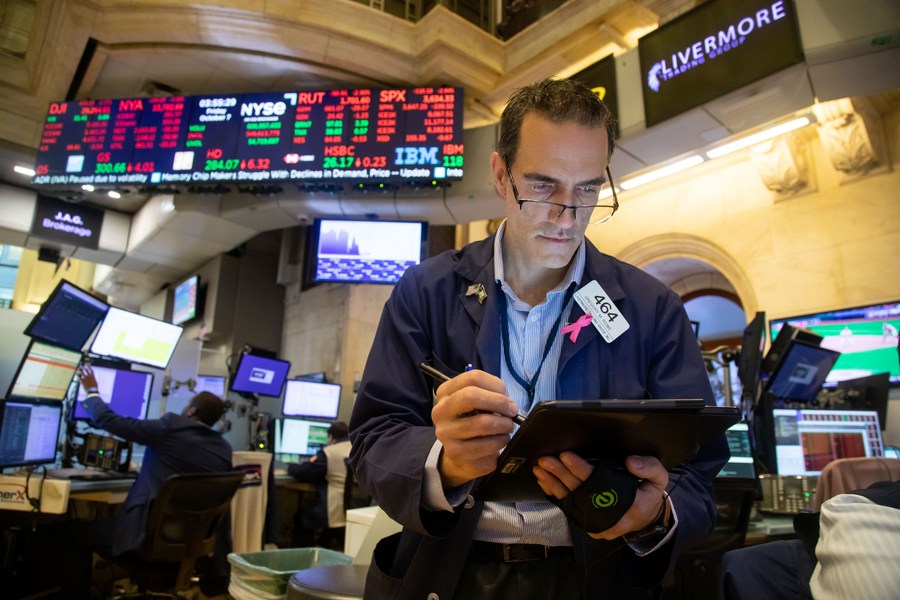Nasdaq logs lowest finish since July 2020
 0 Comment(s)
0 Comment(s) Print
Print E-mail Xinhua, October 11, 2022
E-mail Xinhua, October 11, 2022

U.S. stocks fell on Monday, with the tech-heavy Nasdaq posting its lowest close in more than two years, as investors continued to worry about the pace of central bank tightening and its impact on the economy.
The Dow Jones Industrial Average slid 93.91 points, or 0.32 percent, to 29,202.88. The S&P 500 decreased 27.27 points, or 0.75 percent, to 3,612.39. The Nasdaq Composite Index shed 110.30 points, or 1.04 percent, to 10,542.10, its lowest close since July 2020.
Seven of the 11 primary S&P 500 sectors ended in red, with energy and technology down 2.06 percent and 1.56 percent, respectively, leading the laggards. Industrials rose 0.33 percent, the best-performing group.
Monday's drop marked a fourth straight losing session on Wall Street as fears mounted that the Federal Reserve's aggressive rate-hike campaign could tip the economy into a recession.
Jamie Dimon, chief executive officer of JPMorgan Chase, on Monday warned that the United States is headed for a recession in the next six to nine months and stocks could slide much further.
Investors are cautiously looking to the September U.S. consumer price index due on Thursday, for the latest indication on what the inflation picture looks like.
The U.S. payrolls report for September released last week showed the labor market remains tight, supporting the case for the Fed to continue tightening policy aggressively.





